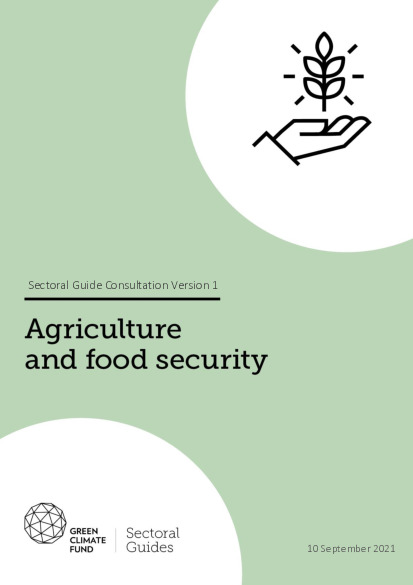Sectoral guide: Agriculture and food security
Agriculture is central to food and security, livelihoods, and economic development across the world but more importantly in developing countries. Being primarily based on rural production systems, the sector supports livelihoods of around 86% of the world’s rural population. Many of the world’s 500 million smallholder producers still live in poverty and face multiple challenges such as disruptions from climate change events, meeting increasing demand for food from growing populations, and degrading agroecological landscapes and resources. Climate change impact particularly challenging in the developing countries due to their dependence on rainfed farming. Climate change related and other risks faced by other sectors including forestry and land use, water, energy, ecosystem, and health also affect the sector indirectly. The COVID-19 pandemic too is estimated to add between 83 and 132 million people to the total number of already undernourished people in the world, reinforcing the importance of agriculture and its linkages to nutrition, migration, stability, and even national security. Therefore, smallholder producers who produce much of the planet’s food needs to be put at the forefront of reconfiguring our food systems towards resilient and carbon neutral development pathway.
Transformation towards climate resilient and low emission agriculture can be achieved through three interlinked paradigm-shifting pathways and enabling environment supporting them. These are: (1) Promoting resilient agriculture; (2) Facilitating climate informed advisory and risk management services; and (3) Reconfiguring food systems. In the context of a changing climate and loss of biological diversity, increasing the quantity and quality of food production, while reducing its carbon footprint, requires adaptation and mitigation efforts across these paradigm shifting pathways. GCF supports developing countries to achieve the paradigm shift towards low-carbon and climate-resilient development pathways in agriculture sector and build climate resilience of millions of vulnerable smallholder farm households.
The sectoral guide draft was released for consultation between November 2020 and January 2021. The Secretariat received more than 660 suggestions and recommendations which are addressed in the current version of the guide. The sectoral guide will be submitted to the GCF Board for its consideration in 2022. In the meantime, GCF remains open to further feedback on this draft. For further inquiries please contact us via: [email protected].
